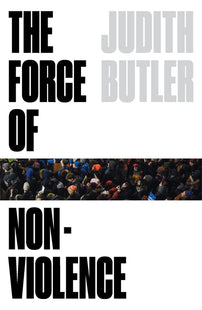Bifo - Diary of the psycho-deflation
Franco 'Bifo' Berardi charts the spiralling collapse of the social order under the effects of COVID-19.

You are the crown of creation
And you've got no place to go
“The word is now a virus. The flu virus may have once been a healthy lung cell. It is now a parasitic organism that invades and damages the central nervous system. Modern man has lost the option of silence. Try halting sub-vocal speech. Try to achieve even ten seconds of inner silence. You will encounter a resisting organism that forces you to talk. That organism is the word.”
(William Burroughs: The ticket that exploded)
February 21st
At Bologna airport, back from Lisbon, an unexpected scene: white overalls and yellow helmet, two people approach the incoming passengers and point a white pistol at their forehead to take the body temperature.
A premonition: are we going to pass through to a new threshold in the process of techno-psychotic mutation?
February 28th
The noisy city is silent, the schools are closed, the theatres closed. No students around, no tourists. Travel agencies are cancelling entire regions from the map.
The recent convulsions of the planetary body have provoked a collapse that obliges the organism to stop, slow down, desert the crowded places and the frantic dally negotiations?
It may be that this shock is the way out that we have so far been unable to find: a psycho-epidemic, a linguistic virus that grows out from a physical virus and mingles with it.
The collapse of the planetary body is the consequence of a biological virus that provokes a (not so) lethal affection, but mainly it is the effect of a viral agent whose action is unknown: neither the immune system nor medical science know anything about the agent. The unknown stops the machine, the biological agent turns into an info-virus, and the info-virus unchains a psychotic reaction.
A semiotic virus in the psychosphere has blocked the abstract functioning of the system, by removing bodies.
March 2nd
William Burroughs employs the figure of the virus as a force hovering between an evolving being and mere replicator. This way he questions the conventional definitions of living and non-living. The bio-virus is a living organism that emanates non-living entities (info-virus) that in turn act on the psychosphere.
A semiotic virus in the psychosphere is blocking the abstract functioning of the machine as bodies are slowing down their movements, and renouncing action at last. So, humans relax their pretence to govern the world, and swim passively in the flow of time. Nothingness swallows one thing after the other, and the anxiety of keeping the world together, that was keeping the world together, relaxes.
There is no panic, no fear, only silence. In the past twenty years, we have rebelled but to no avail, we have nervously mobilised our energies to no avail. So let’s stop.
How long will this psychotic fixation that we call coronavirus last? Experts say that springtime will kill the virus, but as far as we know it may boost it. We know almost nothing about the virus, how can we know what temperature it prefers?
The point is not how lethal the virus is. The effect of the virus is not linked to the number of people it kills.
The effect of the virus lies in the relational paralysis it is spreading.
The world economy has been stagnating for years, but we have been unable to recognise it, to accept it, to deal positively with the secular stagnation.
Now the semiotic virus, and the psycho reset that it is bringing about, is helping us in the transition towards immobility.
Can you understand that?
[book-strip index="1" style="display"]March 3rd
How does the organism react after three decades of hyper-stimulation, ceaseless tension, war for survival and natural selection, how does the social body unable to get free from the addiction that transforms life into permanent stress react? How does the planetary body react, how does the interconnected mind react?
In the second part of 2019, the planetary body entered into a sort of spasm. A convulsion from Hong Kong to Barcelona, Santiago, Quito, Beirut, riots everywhere. The rebellion had no unifiable objectives, and the different riots did not converge towards a common goal. The mind was unable to direct the diverse drives, so the fever grew until the end of the year.
Then Trump killed Soleimani, an act for the jubilation of that murderous people.
Millions of desperate Iranians marched in the streets crying, howling, promising a clamorous revenge. Nothing happened. The Iranian army launched a bomb in the courtyard, and, panicking, the artillery downed a civil airplane. Trump won everything, God is evidently with him: Americans get excited when they see blood, and killers are their heroes.
Nazi-Trumpism and increasing nervous stimulation for everybody. End of story?
Then came the surprise, the unpredictable overturning: the implosion.
After the convulsion, the hyper-excited organism that is humankind has finally been hit by a collapse: a sort of gerontomachia killing mostly octogenarians, has blocked the frantic global machine of the accumulation economy.
Capitalism is an axiomatics: it is based on an indemonstrable hypothesis: that boundless growth is possible and necessary. This presupposition makes accumulation possible, and value extraction mandatory. All the logical and economical concatenations are consistent with that axiom, and nothing can be conceived outside of it. No political way out from the capital axiomatics, no language can say what is outside language, and there is no possibility of destroying the system, as every linguistic process is deploying inside an axiomatics that makes extra-systemic enunciations unworkable.
The only way out is death, as Baudrillard intuited. It is only after death that life will be possible again. After the death of the system the extra-systemic organisms will be allowed to start a new life. provided that they survive, of course, and this is not certain.
The coming recession can kill us, can provoke violent conflicts, epidemics of racism and war. It’s good to know this. We are no prepared to think the stagnation as a long-lasting condition, we are not prepared to think frugality, sharing, we are no prepared to dissociate pleasure from consumption.
March 4th
For decades we have been unable to find a way out from the corpse of capitalism, but the shock following the convulsion gives way to a psychological deflation. In order to counter the stagnation and to relaunch profits, capitalism has forced us into constant competition, and has worked us to the bone in exchange for ever-decreasing salaries. Now the virus is deflating the bubble of acceleration. Maybe facing a common invisible enemy will generate nostalgia for social solidarity.
It has been clear in the last decade that stagnation is the future of the world economy, but capital was pushing us to run faster and faster, for the sake of the absolute dogma of Growth. Revolution was unthinkable, as subjectivity was confused, depressed, and the political brain was unable to govern the chaotic complexity of social reality in the networked age.
The virus is paving the way to a subject-less revolution, a purely implosive revolution based on passivity and surrender. Let’s surrender. All of a sudden this slogan takes a subversive sound: stop excitement, stop the useless anxiety that is a worsening quality of life.
Literally: nothing can be done anymore. So, let’s do nothing.
It seems unlikely that the social organism will recover from this semio-psychotic virus, and the capitalist economy seems doomed.
March 5th
First signs of yelling of the financial system, the economists remark that - differently than in 2008 - the Central Bank and other financial institutions have no tools for relaunching the system.
For the first time the collapse did not come from financial or strictly economic factors: the crisis comes from the body’s collapse. The mind has decided to slow down the rhythm, and the general demobilisation is a symptom of surrendering. An effect and also a cause.
The very biological function has entered in passivity mode, for reasons that have nothing to do with conscious will and a political project. Tired of processing neuro-stimuli that are more and more complex, humiliated by impotence in front of the omnipotent techno-financial automaton, the mind has lowered the tension. Psycho-deflation.
March 6th
I know that one can assert the contrary of what I have said: meeting the ethno-nationalist rage, neoliberalism needs to upgrade the process of total abstraction of life. The virus is obliging everybody to stay home, but the merchandise keeps circulating. Bio-political control of populations and restrictions on mobility can help techno-capitalism to get free from social resistance.
According to Srecko Horvat:
“This is the political danger of coronavirus: a global health crisis that suits both the ethno-nationalist goal of fortified borders and racial exclusivity, and the aim of ending the free movement of peoples (especially those from developing nations) but ensuring that the flow of goods and capital remains unchecked. At present, the rising pandemic of fear is more dangerous than the virus itself. The apocalyptic imagery in the media hides the deepening relationship between the far-right and the capitalist economy. And in the same way that a virus needs a living cell to replicate, so will capitalism adapt to the new biopolitics of the 21st century. Coronavirus has already impacted on the global economy, but it won’t stop the never-ending circulation and accumulation of capital. If anything, we might soon be facing a darker, and even more dangerous form of capitalism, one that relies on the stronger control and purification of populations.”
However, I think that this realistic hypothesis is not realistic enough. Horvat does not consider the subjective side of the collapse and the long lasting effects of the psycho-deflation in terms of economic stagnation.
Capitalism survived the financial collapse of 2008 because the conditions of the collapse were all inside the abstract relation between language, finance and the economy. But it may not survive the collapse that comes from epidemics, here an extra-systemic factor enters the fray.
[book-strip index="2" style="display"]March 7th
My scientific friend Alex writes from Toronto: “all the computing centres of the world are engaged to find the antidote to coronavirus. [Tonight] I dreamt of the final battle between natural bioviruses and artificial info-virus. In any case the human is not in the game. Apparently.”
The biovirus proliferates in the stressed body of the mankind: seems that the lungs are the weak point. In the past few years the respiratory affections spread all over, thanks to the irrespirable air.
Meeting the media system and connecting with the semiotic net, the virus has transferred its debilitating power to the nervous system, to the collective brain.
The health system has been weakened by the cuts to the public spending, imposed by the financial system. The number of general practitioners has decreased, at least in Italy. So now the problem is that there are not intensive care units.
Enter the automaton, and the global computing machine is hunting the formula: counter the biovirus with the info-virus.
Meanwhile energy is withdrawing from the social body and politics is exposing its impotence: will has no grasp on the replicating info-virus.
March 8th
Today I have been obliged to cancel a dinner planned with my brother and sisters. Old people like us are in danger. In Italy the average age of people who die for the virus is 81.
I understand that I am living in a sort of double bind: if I do not cancel the dinner I might be the bearer of the physical virus that may kill brother, who suffers from diabetes. If I cancel the dinner I become a spreader of the psycho-virus, the virus of fear and of isolation.
For the first time I ask myself: what if this nightmare lasts long?
March 11th
The stock market is crashing everywhere. In Milan it is down 17 points, the deepest drop ever.
March 12th
All of Italy is quarantined. The virus is running faster than the measures of containment. I put the sanitary mask on, take the bike to buy newspapers. Kiosks are open, and pharmacies, and food markets. The tobacconist is open. I buy rolling papers to smoke hash during the night. But hash is running low in my small box. Soon I’ll run out of dope, and the young pushers have disappeared from the streets.
Trump has used the expression: “foreign virus”.
All viruses are foreign, but the president has not read William Burroughs.
March 13th
Workers are on strike because, despite the general quarantine, they must go to factories and work on the assembly line with no sanitary mask and no safety distance.
Nobody can say what will happen next in one month, or six months.
It may be a techno-totalitarian state is the future. In Black Earth Timothy Snyder explains that there is no better condition for the emergence of totalitarian regimes than situations of extreme danger, in which survival is at stake for all.
AIDS prepared virtualisation by spreading fear of bodily contact. Now we might step to a condition of permanent isolation: the new generation might internalise the terror of the other’s body.
Terror is when the Imaginary is totally prevailing on the Imagination.
But here we find the possible split: we might come out from the nightmare by the imagination of a possibility that yesterday was unthinkable: frugality, reduction of work time, equality, abandon of the paradigm of growth, investment of the social resources into research, education, health and pleasure.
We cannot know how we’ll come out from the pandemics whose conditions have been prepared by the neoliberal cut to public health, by the pollution of air and the exploitation of nervous energies.
We might come out from it in a condition of extreme loneliness and aggressiveness. But we might also come out with the desire for embracing, caressing and for laziness.
The virus is a condition for a mental jump that no politica preaching could produce. Equality is back, at the centre of the scene.
Let’s imagine that it is the starting point of the coming time.
[book-strip index="3" style="display"]




